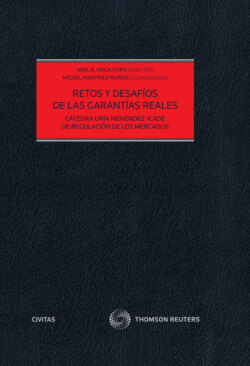Читать книгу Retos y desafíos de las garantías reales - Abel B. Veiga Copo - Страница 79
На сайте Литреса книга снята с продажи.
1.2.3. Multilateral institutions
ОглавлениеThe so-called Multilaterals – among them most prominently the IMF and the World Bank but also their regional counterparts like the European Bank of Restructuring and Development, the Inter-American Development Bank or the African Development Bank – are also prominent lenders for states. They play a quintessential role in the global finance architecture, primarily because they take on the role of a credit provider only as an emergency tool; they are often called lenders of last resort. Thus, when others abstain from lending because of the negative economic outlook and the riskiness of the transaction, the Multilaterals are ready to step in. This rescue gained prominence in Europe only recently in the context of the Troïca-support for Greece when, i.a., the IMF was blamed of doing the wrong things. This accusation has tradition and seems to be part of the game; be it mentioned as an aside that it is by far not always justified.
The roots for that blaming lie primarily in the fact that the Multilaterals provide their loans not for free but subject to what is called conditionality. This means that money is transferred only when and to the degree that the borrowing state complies with the duties imposed by those lenders. These conditions are occasionally far-reaching and based on certain economic assumptions; and they are often felt as painful. When, for instance, one of those conditions is to enhance the efficiency of the taxing system or when it is ordered to stop paying an annual 13th monthly salary in the public labor sector39 it is quite automatic that the population or the affected parties are not entirely amused and are more than willing to blame those “guys from the lender institutions” as being ignorant, arrogant and noxious. As a matter of fact, however, the multilaterals are well advised to constantly monitor and improve their catalogues of conditions in order to push the right buttons in that particular state rather than the buttons favored by a certain economic school of thinking.
In addition to the conditionality, the Multilaterals usually claim the right of preferred creditor status when the borrowing state encounters financial difficulties. This resembles the commercial insolvency rule that often can be found in legislations according to which rescue loans given for the –ultimately futile– salvation of a debtor company enjoy a privilege in the ranking of claims. Though nowhere codified and, legally speaking, grounded on shaky justifications, this privilege of the Multilaterals is commonly accepted; as has been said already before, the ESM-Treaty, too, takes it for granted and adopts it for itself40.
